Georgia: A struggle for pensioners
Babilina Khundadze has turned 80 this year. She lives in Kvemokheti village, Guria region.
Her memory is what she is proud of most. She could remember well the nationwide mourning over Stalin’s death, ‘Perestroyka’, the dark ’90s, Saakashvili’s ruling, as well as could tell you in details how Ivanishvili came into politics.
Among all other things, she also remembers the pledges that the politicians tend to issue from one election to another.
She is observing with interest this year’s election campaign too. Every evening, as she finishes her household chores, she goes to her coeval neighbor, Tina. They turn on the TV set, watch the news programs and talk politics.
“I think, we are going to live high this year, Tina, says Babilina. “See, how they try to outrun each other in the amounts of pensions they are going to issue us.
“They probably think that as we are pensioners, we won’t remember anything tomorrow, answers Tina, and both of them start laughing.
Parliamentary elections are scheduled for October 8 in Georgia. The parties have already placed on TV their promo videos, accumulating their key campaign messages.
The words: ‘a pension’ and ‘a pensioner’ could be found almost in all promo clips. Nearly all political parties have included pension increase in the list of their main campaign pledges.
Today, a pension amounts to GEL180 (US$76) in Georgia. Pensions have increased by GEL20 over the year. However, given the increased prices on foodstuffs and medicines, this amount could hardly bring any relief.
If we divide GEL180 by 30 calendar days, it turns out that a pensioner should live on GEL 6 per day. Then, if we subtract monthly expenses on taxes and medications, the pension sum will total GEL 70-80 on average.
Ex-defence minister, Irakli Alasania’s political team promises the highest pension rate to the retired in Georgia. If they win, the ‘Democrats’ are planning to increase pensions up to GEL300. Alasania claims, if they come to power, there will be a 7-8% economic growth in Georgia over the next 4 years, which implies GEL 4 billion increase in the state budget funds. GEL1,5 billion out of the aforesaid sum will be spent on increasing pensions, the minimum subsistence level and the minimum wage.
Georgian Laborists are traditionally distinguished by issuing vast campaign promises. According to the Labor Party leader, Shalva Natelashvili, if his party comes to power, the retirement age will be lowered to 55 for the women and 60- for the men. Pensions will be issued according to the length of service and everyone will be paid an extra, 13th pension on one’s birthday. Whereas the retired persons above 80 will be granted additional GEL100 per year.
Paata Burchuladze, the Georgian operatic bass, is also not shy about issuing campaign pledges. Burchuladze, who set up a political party this year and who intends to get into Georgian Parliament, plans to increase pensions up to GEL250 at the expense of reduced bureaucratic costs.
The key entities of this year’s election campaign- the United National Movement (UNM), which is the most high-rated opposition party, and the ruling Georgian Dream (GD) party, are more moderate in issuing campaign promises.
The UNM members pledge to increase pensions by GEL50 starting already from November 2016 and, to achieve this, they are going to reduce the bureaucratic costs by GEL1billion. At the same time, as they claim, if they come into power, they will be regularly increasing pensions starting from 2017, following the economic growth. 4 years ago, when the UNM was in power, a pension in Georgia made GEL125.
As for the ruling party, its pre-election program doesn’t specify, how much the pensions are going to be increased. The ruling team offers the electorate a private defined contribution pension system starting from 2017. The matter concerns the so-called defined contribution pension model, which implies the engagement of both, an employee and an employer, who should transfer certain amounts to the pension fund. There are various defined contribution pension models in the world and the developed countries owe it the so-called ‘affluent old age.’ However, if this model is introduced in Georgia in 2017, the people like Babilina and Tina are unlikely to benefit from it. This model is only for those, who are currently employed and who have about 10-15 years ahead before they retire.
Irakli Kobakhidze, GD Secretary General claimed, the party issued only ‘realistic promises’.
The Georgian Dream party, which has 4 years’ experience in being in power, is obviously more cautious as compared to 2012.
Back in 2012, along with cutting twice the utility service costs and providing the interest-free loans, the leaders of this political force also promised the population to ensure GEL220 monthly pensions. The 2012 video clips, featuring the GD members issuing some unrealistic and populist promises, are still very popular on social media:
Focusing on pensioners is a rather advantageous campaign reckoning. According to 2014 census data, there are 531,073 pensioners in Georgia, that is 14, 3% of the overall population. And, certainly, each of them is eligible to vote.
In addition, pensioners are the most underprivileged and socially vulnerable layer of the population in Georgia, and the politicians skillfully make use of it.
How realistic are the promises issued by the politicians ahead of elections? Are their figures based on actual calculations or is it just a campaign populism?
Zviad Khorguashvili, an economist, believes that those, who promise the electorate to increase pensions by GEL50, don’t have the faintest idea, where to bring that money from.
“There should be something to balance the pension increase-either the costs should be reduced or the government should take a debt. Additional GEL430million are required to increase pensions by GEL50, which could be achieved through cutting down the bureaucratic costs. The budget has the resources for that. However, any pledges to increase pensions even more are nothing but a fairy tale.
In the opinion of Akaki Tsomaia, an economist, it is possible to increase pensions, but the most important thing is at what expense it would be done. Tsomaia believes, the main problem lies in the present pension system.
“In my opinion, the government should waive the responsibility to provide people with pensions. We should understand the difference between pensions and social assistance. What the politicians promise the voters today is actually the social assistance rather than the pensions.
“The country should shift onto the defined contribution pension system as soon as possible. Otherwise, the state will find it hard to provide the public with normal pensions in the long run. The government’s proposed pension reforms are more façade rather than fundamental. It further aggravates a burden from the income tax. However, it should be the other way round-the income tax should be reduced and people should decide themselves how much, how and where to accumulate,says Akaki Tsomaia.
Despite the abundance of promises, the pensioners, whom we interviewed, don’t pin much hope on and have low expectations from the upcoming elections.
“I don’t even know who they are and what they promise us. I rely solely on myself and that’s why I’m standing here, says Grisha Maisuradze, a pensioner from Tbilisi, who has been selling fruits and vegetables in the street and thus providing for his family for years.
“At 9 a.m., I already have all my goods set out on the stall and I stay here till 10 p.m., every day. It’s not suitable for an old age, is it? And I will be in such a condition the next 4 years and perhaps the years thereafter if, of course, I’m still alive and have enough strength for that by that time.

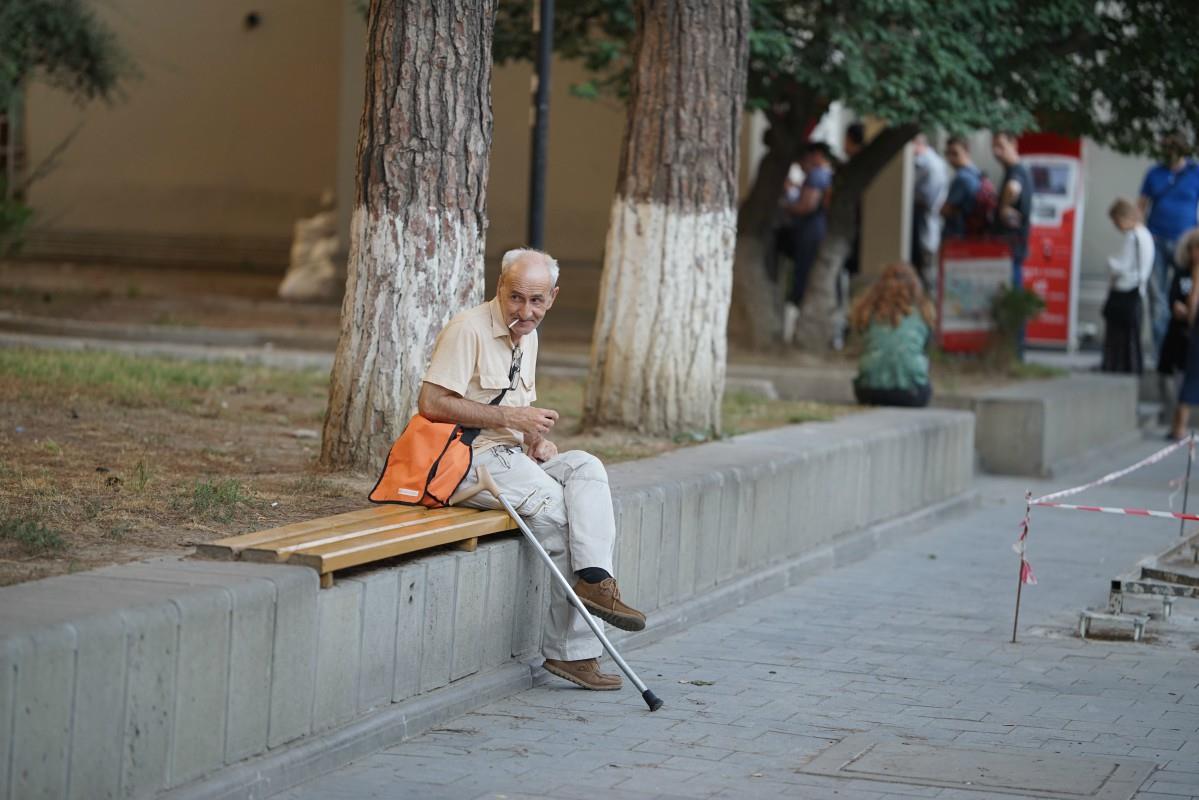
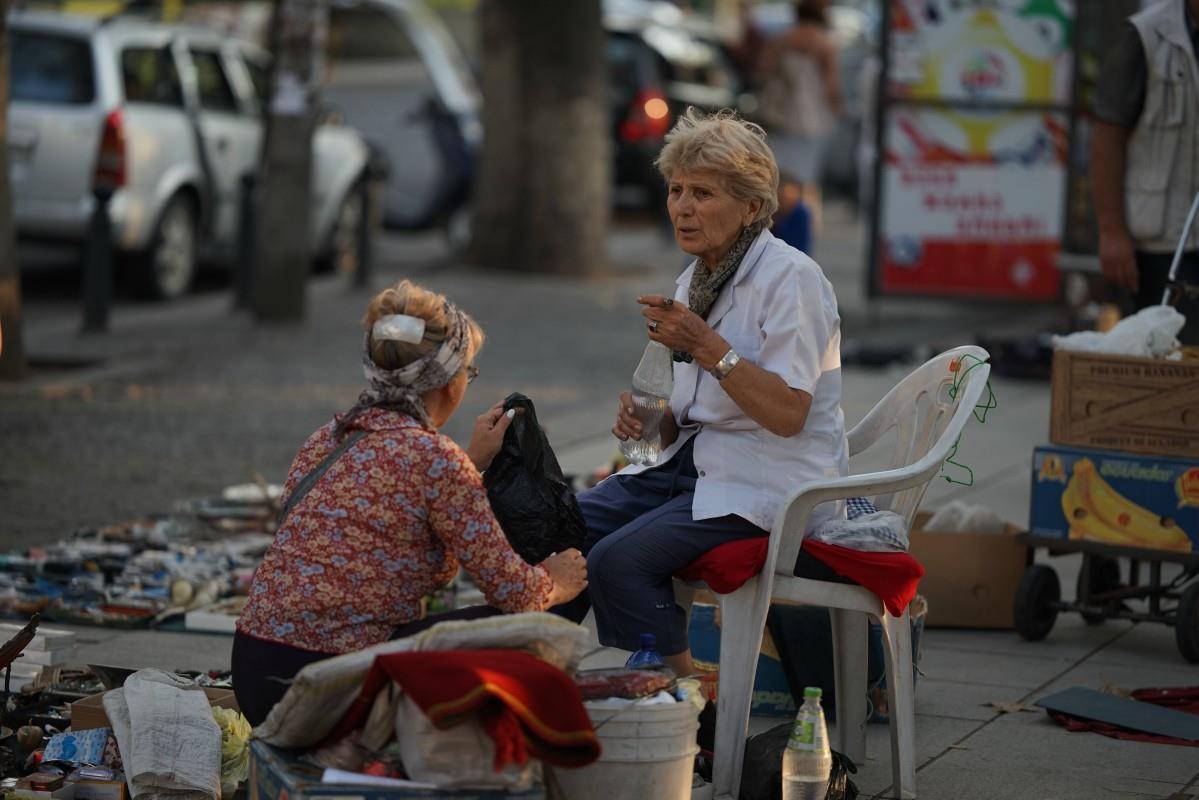
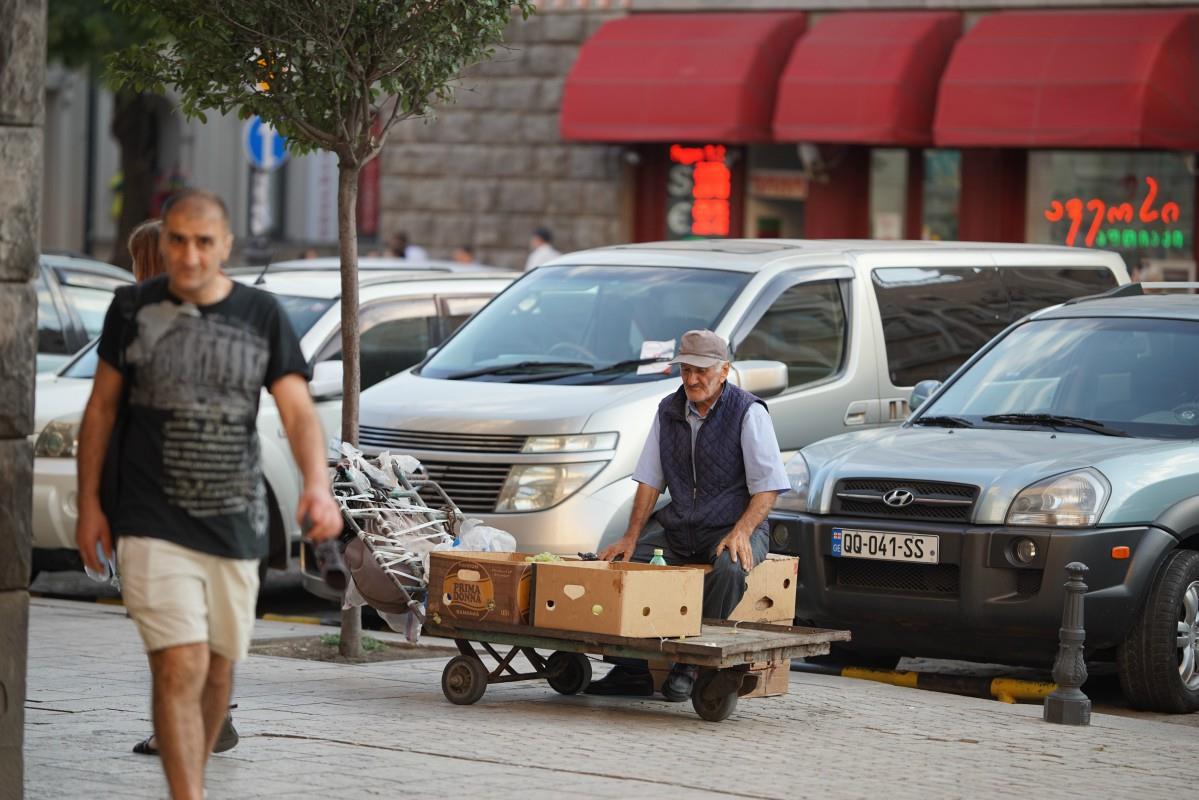

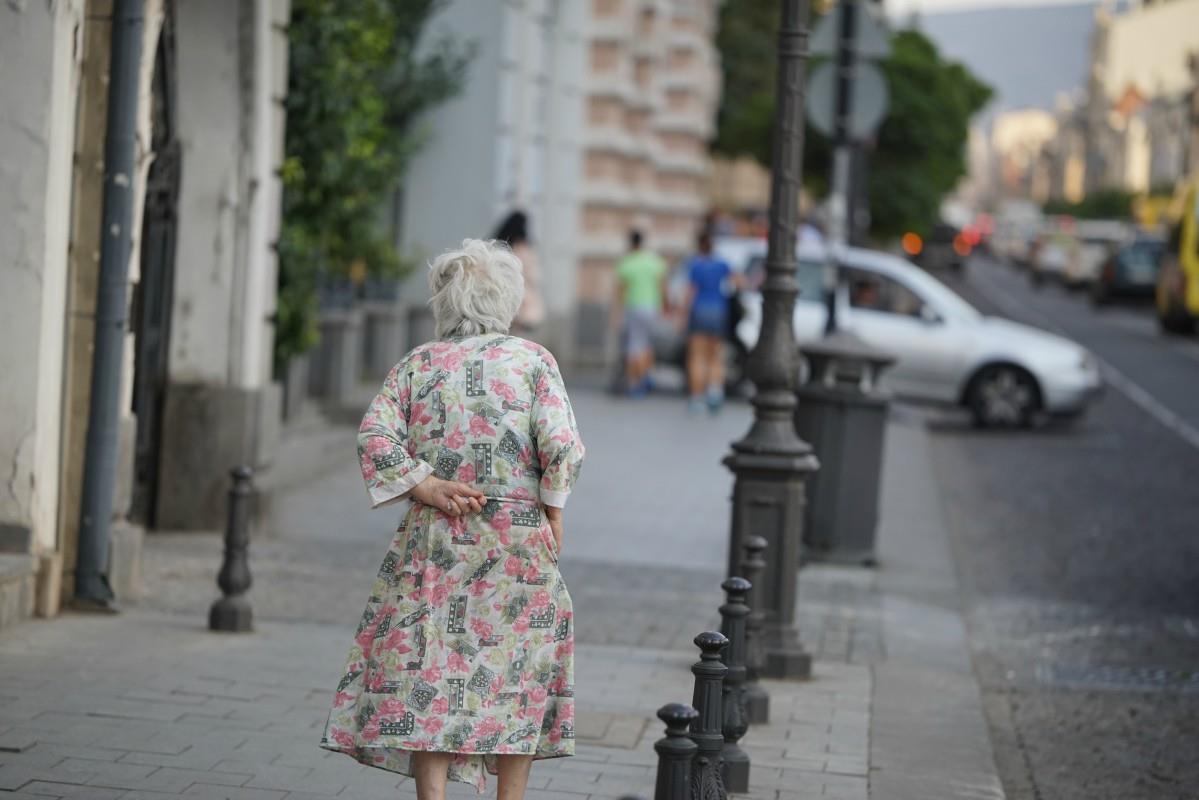
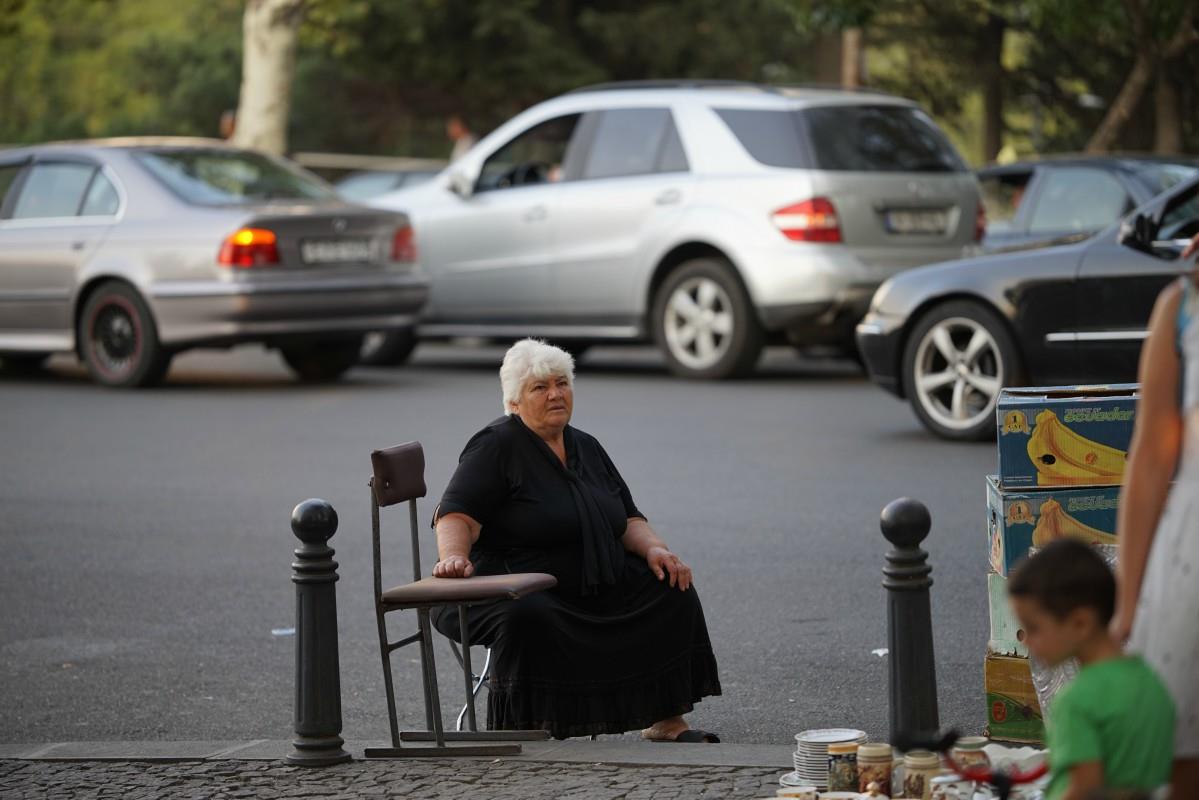
13. 09. 2016



















